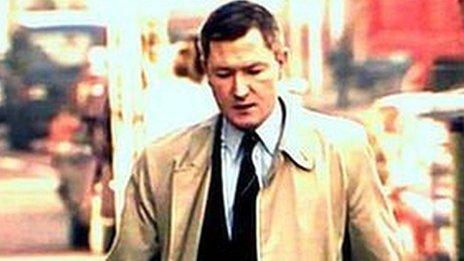Pat Finucane: A murder with 'collusion at its heart'
- Published
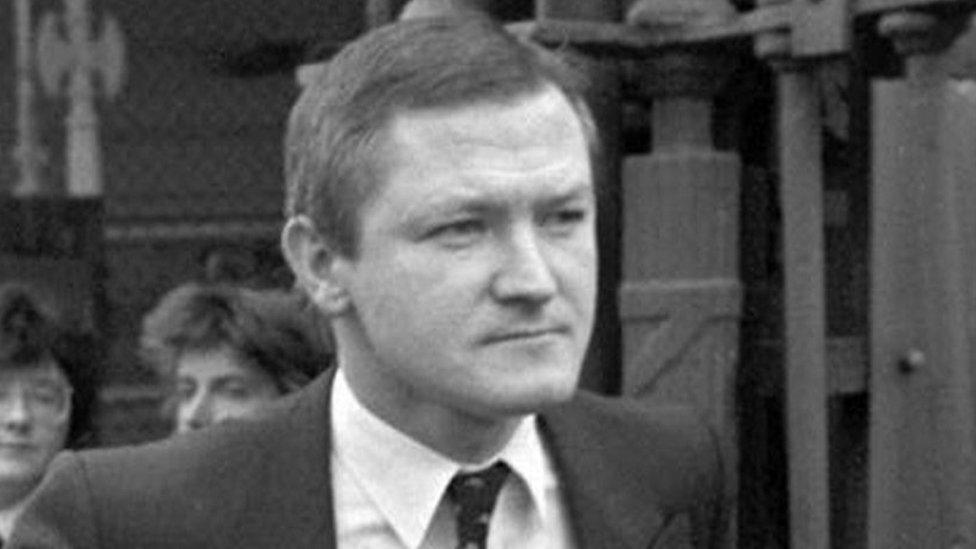
Pat Finucane, a 39-year-old Belfast solicitor, was shot dead in front of his wife and children in 1989
The murder of Belfast solicitor Pat Finucane in 1989 is one of the most notorious of the Troubles.
At its heart is collusion between state forces and loyalist paramilitaries, one of the battleground narratives when it comes to addressing the past.
The government has previously appointed individuals to examine the killing, but nothing has provided his family with the full disclosure it believes only a public inquiry can deliver.
It is a case that has never gone away.
The murder
Pat Finucane, 39, was murdered at home in February 1989.
He was shot 14 times by two masked gunmen from the loyalist paramilitary Ulster Defence Association (UDA) in front of his wife, who was wounded, and three children.
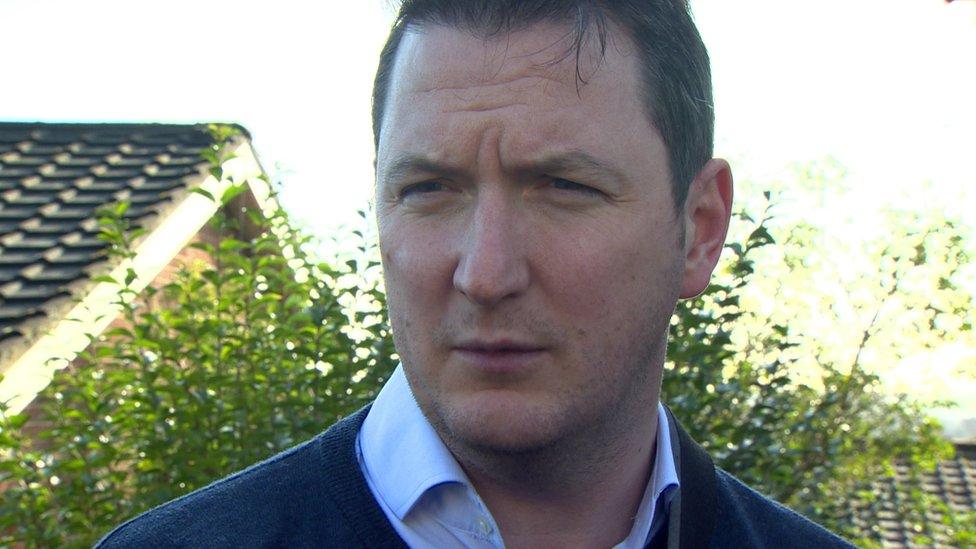
Pat Finucane's son John was elected as the MP for North Belfast in the general election last year
One of those children, John, is now Sinn Féin MP for North Belfast.
At Pat Finucane's inquest, the police refuted the claim by his killers that he was in the IRA.
What led to his murder was the fact he was a well-known defence solicitor who frequently acted for high-profile IRA members. He also represented loyalists.
While arrests followed his killing, the police investigation was later found to have effectively ceased within months.
Met Police chief checks collusion claims
In 1989, Metropolitan Police Commissioner John Stevens was appointed to investigate claims of collusion between state forces and loyalist paramilitaries in numerous killings.
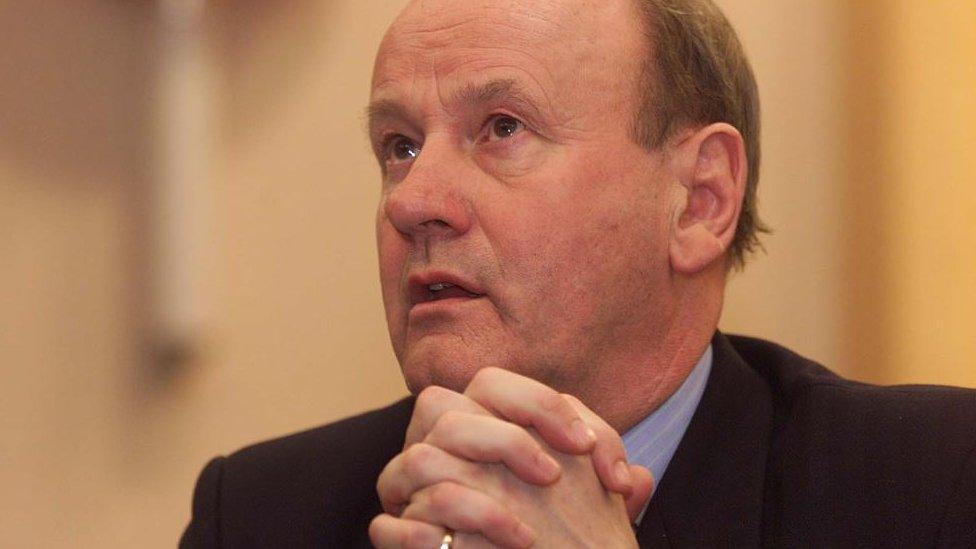
Sir John Stevens compiled a report into the murder
His investigations lasted 14 years and, in Mr Finucane's case, he identified the involvement of two agents within the UDA, Brian Nelson and William Stobie, who are both now deceased.
Nelson worked for the Army and was involved in targeting Mr Finucane.
Stobie, a police informer, provided one of the guns.
The inquiry report said the attack could have been prevented, external and found collusion evident in many ways.
Ex-Canadian judge compiles his report
At the Weston Park political talks in 2001, the government agreed to hold a public inquiry, if recommended by a retired Canadian judge it appointed to examine the case.
Judge Peter Cory issued a report in 2004, external, stating there was "strong evidence" of collusion, including MI5 being aware Mr Finucane was under threat, and found an inquiry was necessary.
But its establishment was delayed on two fronts - the prosecution of Ken Barrett, identified by the Stevens' Inquiry as the gunmen's getaway driver, who had been recruited as a police informer after the murder - and new legislation covering public inquiries, which allowed ministers to restrict evidence.
Baton passed to ex-UN war crimes prosecutor
In 2011, the government changed course on its commitment to a public inquiry and tasked Sir Desmond de Silva, a former UN war crimes prosecutor, to hold an independent review.
He had access to documents not made available before but did not speak to Nelson's handler on medical grounds.
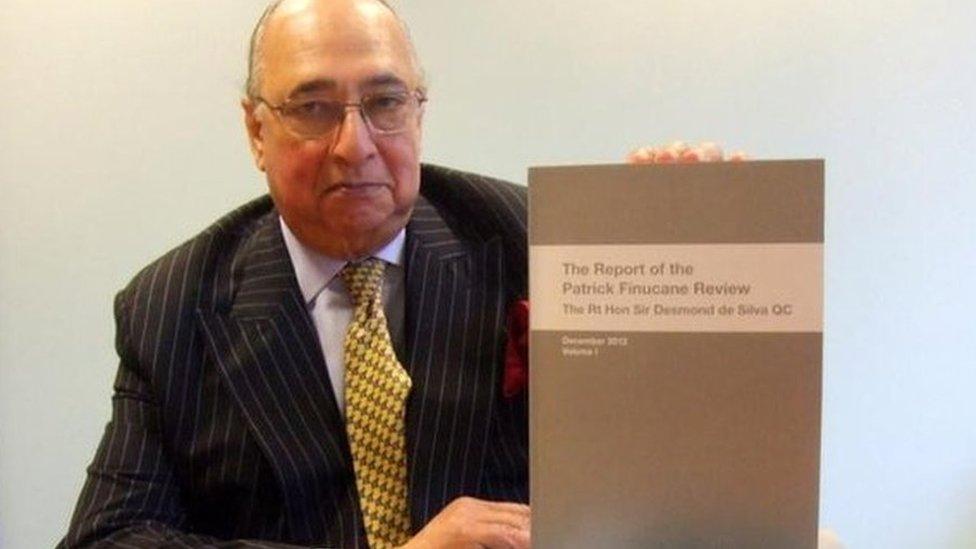
Sir Desmond de Silva with his report on the Pat Finucane case
His report prompted then Prime Minister David Cameron to apologise for "frankly shocking levels of collusion".
As well as agent involvement, it found police took no action to act on threat intelligence regarding Mr Finucane and justice was obstructed.
But there was no "over-arching state conspiracy", the report said.
Widow continues her battle through the courts
Mr Finucane's widow, Geraldine, has engaged in repeated legal action in a long campaign for a public inquiry, believing, on the basis of what Judge Cory indicated to her privately, collusion in the murder went as high up as Cabinet level.
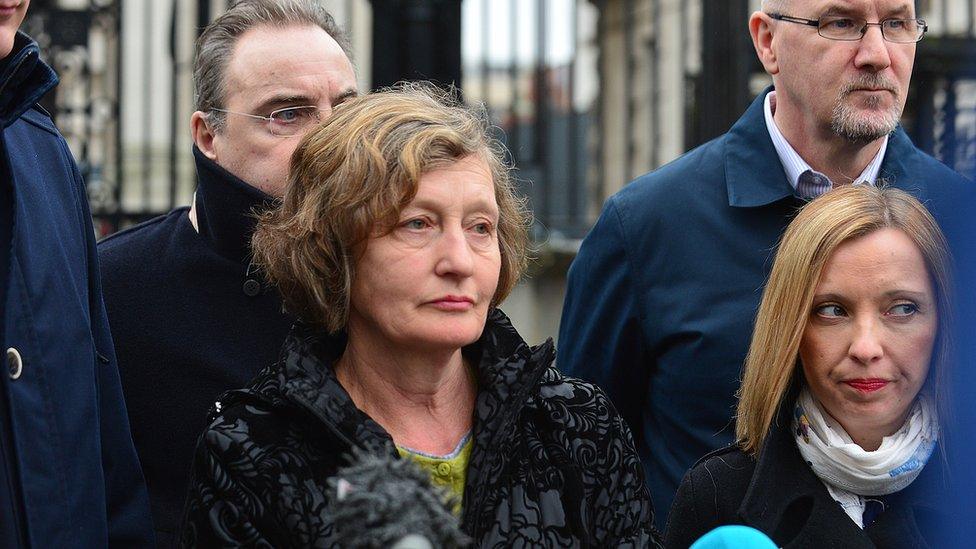
Geraldine Finucane has for many years called for a public inquiry into her husband's murder
In 2019, the UK Supreme Court found there had never been an adequate investigation, external, but stopped short of ordering a public inquiry, ruling it was for the state "to decide what form of investigation is required."
A year passed, prompting another court case, aimed at forcing the government to address the Supreme Court's findings.
In October 2020, a lawyer for Northern Ireland Secretary of State, Brandon Lewis, told a court that a decision would be made before the end of November on whether or not to hold a public inquiry.
On 30 November 2020, NI Secretary Brandon Lewis announced that a public inquiry would not be held at this time and that other review processes by the PSNI and Police Ombudsman had to run their course.
The Finucane family described the decision as "an insult" and pledged to continue their campaign.
- Published22 November 2020

- Published12 October 2020

- Published7 October 2019
